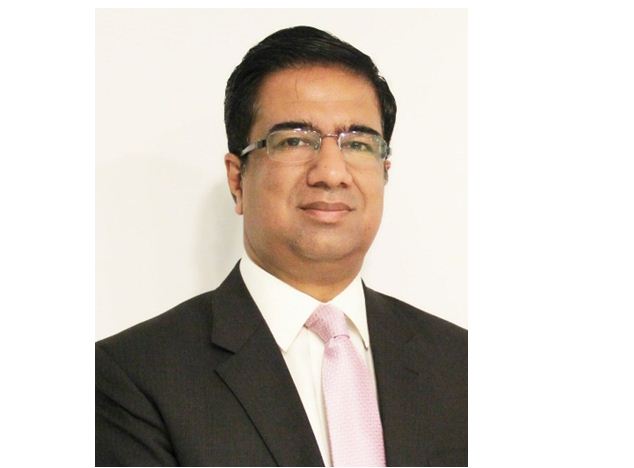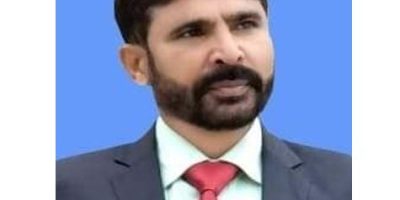Evaluation of Uzbekistan’s Vigilant Role in Afghanistan: Peacebuilding and Reconstruction Process

By Khalid Taimur Akram
It is generally believed that every country in the world has some potential to achieve respectable status among nations’ comity. However, only a few of these countries find leaders who possess the far-sightedness and prudence to steer their nations through tumultuous waters of scathing hardships and challenges to ensure a prosperous future for them. In the 21st century, the rise of Uzbekistan’s potential role both within and outside the Central Asian block has been witnessed due to the remarkable efforts of incumbent Uzbek President ShavkatMiriyoyev.The implementation of Uzbek-ledinclusive development projects in Afghanistan and the receipt of economic benefits from them will increase the interest of all the participants in the inter-Afghan conflict and external forces in a peaceful settlement of the Afghan crisis.
And with financial benefits, it will be realized that trading is much more profitable than fighting. A regional consensus built on this truth will be far stronger than any political agreement or geopolitical deal.Therefore, by supporting the establishment of Afghanistan as a bridge connecting Central and South Asia, Uzbekistan is solving not only socio-economic and transport-communication problems, but also making a significant contribution to ensuring regional security and stability of these regions.In this aspect, the paper elaborates President ShavkatMirziyoyev’sunprecedented rise to the helm of political affairs in Uzbekistan. Moreover, this study highlights Uzbekistan’s substantial role and efforts in the Afghan peace process and socio-economic reconstruction of the country.
Uzbekistan’s Foreign Policy Changesunder President ShavkatMirziyoyev:
Under former Uzbek President Islam Karimov, Uzbekistan was committed to remaining neutral in its foreign relations under its multi-vector policy of keeping a strategic equilibrium within the region. However, more proactive and vigilant interest in seeking positive regional influence and conducting international peace activities by President ShavkatMirziyoyev has enabled the state to become a key regional player. There are various reasons which have accelerated this change in the approach of Uzbekistan’s leadership. Any country’s realistic economic goals cannot be achieved unless that country forms strong socio-economic alliances with the dominant countries in its region vis-à-vis economic development. To achieve this objective, Uzbekistan has significantly improved its relations with Tajikistan and Kyrgyzstan. In this regard, the current Uzbek government has signed agreements to amicably resolve its border disputes with these countries to enhance trade activities with them.Moreover, President ShavkatMirziyoyev has met leaders of many important countries in the region during recent years. These meetings’primary objective was to ensure lasting peace and stability for increasing multilateral economic activities in this region, especially in Afghanistan. In this aspect, Uzbekistan’s active role under the Shanghai Cooperation Organization (SCO)umbrella cannot be overlooked as well.Uzbekistan’s growing energy requirements and need for strong strategic allies have also played an important role in easing of relations with important regional powers. During Russian President Vladimir Putin’s state visit in 2018,multiple contracts were signed for economic projects. The projects worth US$27 billion, including an agreement to build the first civil nuclear power station in Central Asia. President ShavkatMirziyoyev has actively participated in the Chinese-led Shanghai Cooperation Organization’s various activities for region’s socio-economic prosperity. On the bilateral front, both countries are tirelessly working to restore economic growth in the coming years. In this context, significant efforts are being held to increase trade, build new industrial cooperation chains and diversify cargo transportation routes through the efficacious Belt and Road initiative (BRI).
Afghanistan’s Peace Building Process:Role of Uzbek Leadership
According to many experts, Peace in Afghanistan is one of the most important priorities in Uzbekistan’s foreign policy. The country’s will for establishing peace in Afghanistan through its allies is based on its willingness to increase trade and desire to stop the spilling over of religious and ethnic extremism and rampant drug trafficking in Afghanistan.
The Uzbekistan government’s constant efforts for erasing the mistrust between Afghanistan’s neighboring countries has become a reality in recent years. A new political atmosphere based on mutual trust and cooperation has been seen between previously contradicting neighboring states. For ensuring lasting peace in Afghanistan, it has formed relations with all the major stakeholders involved in the complicated Afghan conflict.Moreover, the incumbent leadership has also allowed increasingpeople-to-people connections, trans-regional trade-commerce, and joint peacemaking efforts for assimilating the Afghan government and people.
Uzbekistan’s government has rightly felt the need to have a peaceful approach so that economic and political prosperity goals with wider regional connectivity can become a reality. All these assertions were masterfully described by Uzbekistan’s Minister of Foreign Affairs AbdulazizKamilov when he said:
“Don’t forget that we have a common border with Afghanistan. We have centuries-old history and the destinies of our people are closely intertwined. As President ShavkatMirziyoyev has noted, for over a span of millennia the people of Uzbekistan and Afghanistan developed in one cultural and civilization space.” And how cannot we be interested in soonest recovery of normal life there?”
Furthermore, Uzbekistan’s contribution to peace in Afghanistan has greatly improved its image in the nations’ comity. Underthe visionary and incumbent leadership, the country is becoming a more active member of the international community. Its prudent involvement in peacekeepingin Afghanistan has been appreciated worldwide.
President ShavkatMirziyoyev’s Plans for Afghanistan’s Reconstruction:
War in Afghanistan has been going on for almost two decades now. With the end of this war, peace building process for Afghanistan’s future stability and socio-economic rebuilding must be implemented. For doing so, the agreement for the peaceful transition of power was signed between the USA and Taliban on 28th February. The accord should be implemented in its letter and spirit and all the important regional countries’ support. Uzbekistan, as a main regional player, can facilitate Afghanistan’s integration into Central Asian diplomatic frameworks. The Tashkent Conference held in March 2018, and other such activities, represented this country as a credible regional consensus builder.After fighting in Afghanistan for almost two decades, the USA is pinning its hopes on Uzbekistan and Pakistan to keep the war-torn country stable in the future.Uzbek President ShavkatMirziyoyev has played a dynamic role for supporting the cause of Afghanistan’s socio-economic reconstruction. During recent years,the country has established and strengthened bilateral ties. Moreover, it has facilitated Afghan interests in the Shanghai Cooperation Organization as well. During President’s recent speech at the SCO videoconference summit, he said:
“………we are in favor of the soonest possible elaboration and adoption of a plan of practical actions to assist the social and economic reconstruction of Afghanistan within the framework of the SCO-Afghanistan Contact Group.New prospects for all SCO countries are opening up through the initiatives of transport corridors that would help restore Afghanistan to its historic role as a bridge connecting the Central and South Asia.”
Moreover, Uzbekistan’s share in Afghanistan’s foreign trade has increased up to 7.4% in recent years.Likewise, the share of Afghanistan has gone up to 1.5%. However, according to President ShavkatMirziyoyev, this is not enough, and there is still a huge unused economic potential between both countries. In this context, it has been targeted that the indicators of mutual trade between both states should be increased up to 2 billion dollars by 2023. The adoption of such plans has already begun as the trading houses, and free trade zones in Afghanistan are being constructed using modern technologies and infrastructure development techniques.
Conclusion:
Uzbekistan has playeda constructive and positive role in this regard so far. The country has initiated and conducted many initiatives for bringing durable peace in Afghanistan by collaborating with various stakeholders like Pakistan. Furthermore, Uzbekistan’s efforts for the socio-economic reconstruction of Afghanistan are praiseworthy. To continue the mission of achieving durable peace in Afghanistan, the other countries willing to step up for this cause must take guidance from President ShavkatMirziyoyev’s policies which have proved to be highly effective in pursuance of this goal.
In general, by promoting socio-economic, energy, transport and communication projects in the neighboring country, involving it in regional trade and economic ties, Uzbekistan seeks to promote the transformation of Afghanistan into a link between Central and South Asia, a space of mutually beneficial interregional cooperation, and not military confrontation. The country believes that the prospects for obtaining economic benefits from the projects will strengthen the interest of both the intra-Afghan conflict participants and external forces in the peaceful settlement of the Afghan crisis and the early stabilization of the situation. The implementation of such projects can create a completely new reality for the development of the countries of Central and South Asia, and remove the international community’s heavy burden of responsibility for maintaining security in the region. Ultimately, not only Uzbekistan and the Central Asian region but also the entire international community will benefit from the development and reconstruction of Afghanistan.
Related News

US-Europe rift
Yossi Mekelberg A rift between the US and Europe is quickly brewing. However, neither sideRead More

What the Russia Reveal about 2026
Dr, Muhammad Akram Zaheer As Russia enters 2026, attention is increasingly shifting away from theRead More


Comments are Closed